
The White Stripes were an American rock duo formed in Detroit, Michigan, in 1997. The group consisted of Jack White and Meg White. They were a leading group of the 2000s indie rock and garage rock revival.
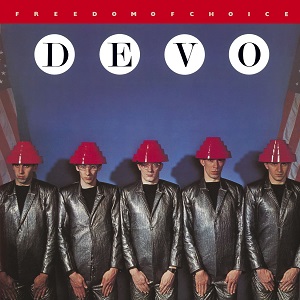
Freedom of Choice is the third studio album by the American new wave band Devo, released in May 1980 on Warner Bros. Records. The album contained their biggest hit, "Whip It", which hit No. 8 and No. 14 on the Billboard Club Play Singles and Pop Singles charts, respectively. Freedom of Choice peaked at No. 22 on the Billboard Pop Albums chart.

White Light/White Heat is the second studio album by the American rock band the Velvet Underground. Released on January 30, 1968, by Verve Records, it was the band's last studio album with multi-instrumentalist and founding member John Cale. Recorded after band leader Lou Reed fired Andy Warhol, who had produced their debut album The Velvet Underground & Nico, they hired Steve Sesnick as a manager and hired producer Tom Wilson, who had worked on the band's debut. White Light/White Heat was engineered by Gary Kellgren.

Hearts of Oak is the third studio album by American indie rock band Ted Leo and the Pharmacists, released on February 11, 2003 by Lookout! Records. A music video was filmed for the single "Where Have All the Rude Boys Gone?".
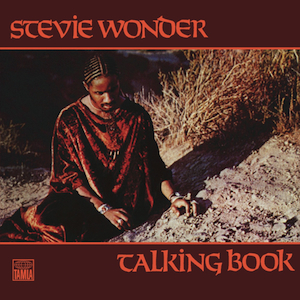
Talking Book is the fifteenth studio album by American singer, songwriter, and musician Stevie Wonder, released on October 27, 1972, by Tamla, a subsidiary of Motown Records. This album and Music of My Mind, released earlier the same year, are generally considered to mark the start of Wonder's "classic period". The sound of the album is sharply defined by Wonder's use of keyboards and synthesizers.

Megan Martha White is an American retired musician who served as the drummer and occasional singer of the rock duo the White Stripes. A key artist of the 2000s garage rock revival, White is noted for her "primal" style of playing and elusive media image. Though she typically performed backing vocals for the band, she occasionally sang lead for one song on each album, including "In the Cold, Cold Night" and "Passive Manipulation".
Whirlwind Heat was a three-piece band from the city of Grand Rapids, Michigan. Although they are avid genre-hoppers, they are often categorized as indie rock.

Electronic Sound is the second studio album by the English rock musician George Harrison. Released in May 1969, it was the last of two LPs issued on the Beatles' short-lived Zapple record label, a subsidiary of Apple Records that specialised in the avant-garde. The album is an experimental work comprising two lengthy pieces performed on a Moog 3-series synthesizer. It was one of the first electronic music albums by a rock musician, made at a time when the Moog was usually played by dedicated exponents of the technology. Harrison subsequently introduced the Moog to the Beatles' sound, and the band featured synthesizer for the first time on their 1969 album Abbey Road.

Music of My Mind is the fourteenth studio album by American singer, songwriter, and musician Stevie Wonder. It was released on March 3, 1972, by Tamla Records, and was Wonder's first to be recorded under a new contract with Motown that allowed him full artistic control over his music. For the album, Wonder recruited electronic music pioneers Malcolm Cecil and Robert Margouleff as associate producers, employing their custom TONTO synthesizer on several tracks. The album hit No. 21 in the Billboard LP charts, and critics found it representative of Wonder's artistic growth, and it is generally considered by modern critics to be the first album of Wonder's "classic period".
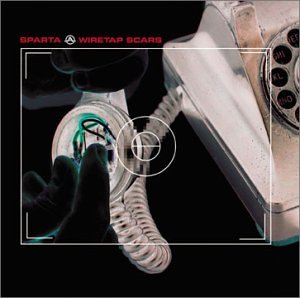
Wiretap Scars is the debut studio album by American post-hardcore band Sparta. It was released on August 13, 2002 by DreamWorks Records and peaked at number 71 on the Billboard 200. Only months separated this release from their debut EP, Austere. The album is greatly influenced by the music of At the Drive-In, with whom most of Sparta's members played before their split in 2001.

The Supersuckers are an American rock band, formed in 1988, whose music ranges from alternative rock to country rock to cowpunk. AllMusic describes the band as "the bastard sons of Foghat, AC/DC, and ZZ Top after being weaned on punk rock, unafraid of massive guitar riffs, outsized personalities, or pledging allegiance to sex, weed, and Satan with a wink and a nudge."

Tonto's Expanding Head Band was a British-American electronic music duo consisting of Malcolm Cecil and Robert Margouleff. Despite releasing only two albums in the early 1970s, the duo were influential in the development of electronic music and helped bring the synthesizer to the mainstream through session and production work for other musicians and extensive commercial advertising work.

"Seven Nation Army" is a song by American rock duo the White Stripes. It is the opening track on their fourth studio album, Elephant (2003). V2 Records released the song to American alternative radio on February 17, 2003, as the lead single from the album. Worldwide, the single was issued through XL Recordings. Written and produced by Jack White, the song consists of distorted vocals, a simple drumbeat, and a bass line created by playing a guitar through a pitch shift effect.
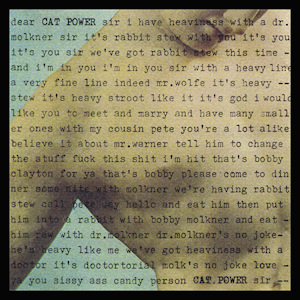
Dear Sir is the debut studio album by American singer-songwriter Chan Marshall, also known as Cat Power, released in October 1995 on Runt Records. Recorded in New York City in December 1994 during studio sessions with Tim Foljahn and Steve Shelley, the album displays Marshall's sparse guitar playing and early lo-fi influence. The album had originally been conceived as an EP, and features covers of songs by Tom Waits and This Kind of Punishment.
"Cut Your Ribbon" is a song by American rock band Sparta. It serves as the first track and debut single off their debut album Wiretap Scars (2002). Another version of this song was released, and it contains many differences, most notably the lyrics. Also, the version of the song off the album has a tone to it that makes the song sound as if it were being performed live. The song received positive reviews from critics praising the instrumentation and vocal performance. The accompanying music video for the song was directed by Sophie Muller.

Your Majesty is the second studio album by American rock band the Anniversary. It was released on January 22, 2002, through Vagrant Records. Following the release of their debut studio album, Designing a Nervous Breakdown in early 2000, the band started writing new material by that August. They later recorded the album in June 2001 at Sonora Recorders in Los Feliz, California, with producer Rob Schnapf.
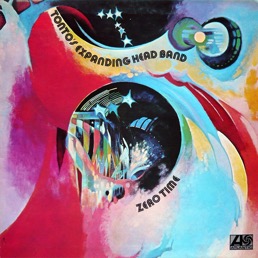
Zero Time is the debut album by British-American electronic music duo Tonto's Expanding Head Band, released on 15 June 1971 by Embryo Records. The album is a showcase for TONTO, a multitimbral, polyphonic synthesiser built by the two members of the band, Malcolm Cecil and Robert Margouleff, as a developed version of the Moog III synth in 1969. The duo began producing their own music together on the synth with the intention to push the machine's abilities, and their own abilities as musicians, to the limit. Recording their compositions in New York, they approached TONTO with no pre-conceived notions and intended to make music intrinsic to the synthesiser.

The Great White Wonder is the second full-length album by the Welsh band The Pooh Sticks. The album was released in June 1991 and is the band's final album release on an independent label before signing to RCA Records in 1992. The album features guest vocals from Amelia Fletcher.
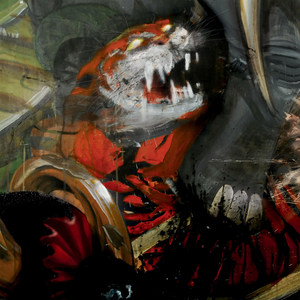
Jessica Rabbit is the fourth studio album by American noise pop duo Sleigh Bells. It was released on November 11, 2016, by Torn Clean, the duo's own label, in partnership with Sinderlyn.

White Blood Cells is the third studio album by American rock duo the White Stripes, independently released by the Sympathy for the Record Industry on July 3, 2001. Recording took place in Memphis, Tennessee at Easley-McCain Recording over three days, and was produced by guitarist and lead vocalist Jack White. Production was rushed in order to capture a "real tense feeling" and the band's energy, and was their first album to be mastered in a studio.


















